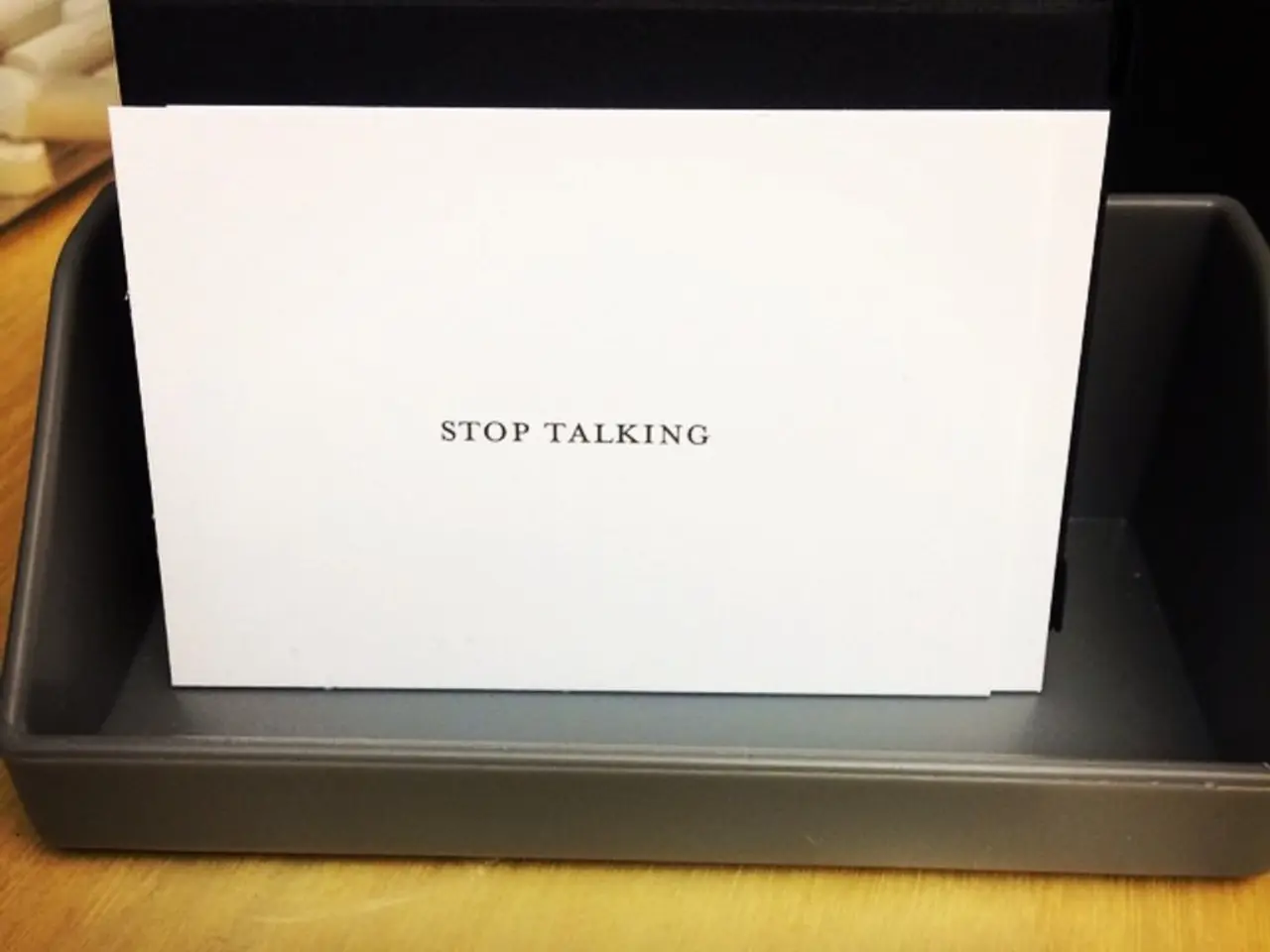Brain Needs Stimulation Instead of Being Labeled as Malfunctioning
Boredom, a common experience in today's fast-paced world, can lead to apathy, fatigue, and even depression if ignored over a long period. But what many might not realise is that boredom is often a sign of the brain's need for challenge, stimulation, or meaning, rather than a flaw in ourselves.
The brain, a highly sophisticated, reward-driven machine, thrives on novelty, learning, purpose, and challenge. It is not designed for spreadsheets, endless notifications, or meetings that could've been emails. When the brain doesn't get enough stimulation, it stops functioning optimally, leading to loss of focus and procrastination.
One solution to combat this issue is to engage all senses in the present moment. Mindful walks without devices, for instance, can help shift the brain towards positive stimuli and refresh mental alertness. Regular stretch breaks and physical movement, like quick walks or stretches, also play a crucial role in interrupting cycles of boredom or mental fatigue.
Another useful approach is body doubling—working alongside another person to stay accountable and focused on boring tasks. Finding meaning outside of routine activities through hobbies, side projects, or new engaging pursuits can provide cognitive stimulation and counteract the dullness associated with repetitive environments such as work.
In educational or workplace settings, increasing interactivity, personalising tasks to one’s interests, and using game-like elements can boost engagement and reduce boredom. Consistent self-care routines with timed breaks for hydration, movement, and breathing exercises also positively influence focus and reduce apathy.
Some supplements, such as Citicoline, Rhodiola Rosea, Bacopa Monnieri, and Lion's Mane Mushroom, can help support mental energy, reduce mental fatigue, enhance memory, and promote neuroplasticity—your brain's ability to form new connections. Puzzles, games, projects that push your limits can reignite your focus and provide the stimulation your brain craves.
In summary, combating chronic boredom involves engaging all senses in the present moment, breaking down tasks into manageable chunks with achievable goals, incorporating physical movement and stretch breaks regularly, using body doubling to increase accountability, seeking meaningful activities outside regular tasks, enhancing environment or tasks to be more interactive and personalized, and practicing self-care throughout the day to maintain mental and physical energy. These strategies combined can help revitalize interest and mental stimulation, effectively reducing feelings of chronic boredom.
Read also:
- Postpartum Period and Gestational Diabetes: Does it Persist?
- Controlled spree of Legionnaires' disease among Harlem residents ceased, city health authorities confirm; however, locals push for increased openness and information disclosure
- Transform City for the Better
- Prostate Cancer Examination Guidelines, Outcomes, and Financial Aspects








